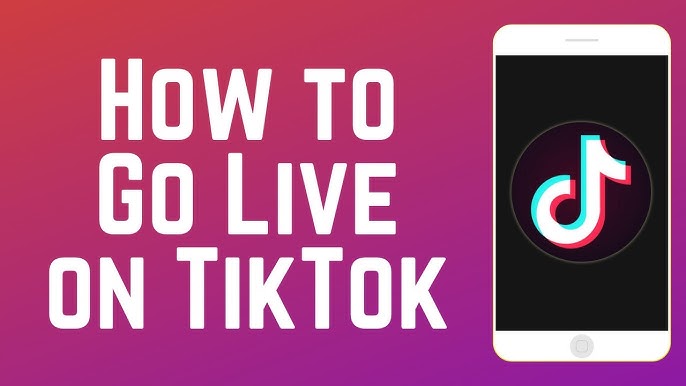04:13:17 pm 03/07/2024
Viewed: 7681
The Fate of TikTok Hangs in the Balance: Will It Be Banned in the USA?
TikTok, the wildly popular social media platform, is facing a potential ban in the United States as lawmakers grapple with concerns over national security and data privacy. But what exactly does this mean for the millions of users aged 25 to 65 who rely on the app for entertainment, connection, and business?
The TikTok Bill: A Closer Look
At the heart of the debate is the Protecting Americans from Foreign Adversary Controlled Applications Act, a proposed legislation aimed at safeguarding national security against the perceived threats posed by apps like TikTok, which are owned or controlled by foreign adversaries. If enacted, the bill would make it illegal to distribute apps developed by ByteDance, TikTok's parent company, or its subsidiaries, unless ByteDance sells off the app within a strict 180-day timeframe.
Essentially, the bill presents ByteDance with a stark choice: either divest TikTok or face expulsion from U.S. app stores and web-hosting services. This move is fueled by bipartisan concerns that TikTok could potentially compromise the personal data of American users and serve as a conduit for foreign propaganda and misinformation.
The Political Landscape: Will TikTok Survive?
While the fate of TikTok hangs in the balance, it's essential to understand the political dynamics at play. The bill has garnered support from lawmakers across the spectrum, reflecting a unified stance on the need to address national security risks associated with foreign-controlled apps. However, its passage is far from guaranteed, as it would require approval from both the House and the Senate before landing on the president's desk.
Proponents of the legislation argue that it's not a ban on TikTok per se, but rather a call for ByteDance to make a strategic decision in the interest of national security. This sentiment has been echoed by the White House, which views the bill as a necessary safeguard against potential threats to U.S. interests.
TikTok's Response: Defending Free Expression
Unsurprisingly, TikTok has vehemently opposed the bill, equating it to an outright ban that would infringe upon the First Amendment rights of millions of users and stifle small businesses and creators. The company has launched a campaign urging users to contact their representatives and oppose the bill, framing it as a threat to free expression and economic opportunity.
What Lies Ahead for TikTok?
As the debate rages on, all eyes are on Capitol Hill, where lawmakers are grappling with the complex legal, economic, and security implications of the proposed legislation. While the bill faces significant hurdles, its potential impact on TikTok and the broader social media landscape cannot be understated.
In the coming weeks and months, expect heated discussions, legal challenges, and perhaps even unexpected twists and turns as policymakers, industry stakeholders, and users alike weigh in on the future of TikTok in the United States. Whether it's a ban, a sale, or a compromise, one thing is clear: the fate of TikTok hangs in the balance, and the stakes couldn't be higher.
TikTok, the wildly popular social media platform, is facing a potential ban in the United States as lawmakers grapple with concerns over national security and data privacy. But what exactly does this mean for the millions of users aged 25 to 65 who rely on the app for entertainment, connection, and business?
The TikTok Bill: A Closer Look
At the heart of the debate is the Protecting Americans from Foreign Adversary Controlled Applications Act, a proposed legislation aimed at safeguarding national security against the perceived threats posed by apps like TikTok, which are owned or controlled by foreign adversaries. If enacted, the bill would make it illegal to distribute apps developed by ByteDance, TikTok's parent company, or its subsidiaries, unless ByteDance sells off the app within a strict 180-day timeframe.
Essentially, the bill presents ByteDance with a stark choice: either divest TikTok or face expulsion from U.S. app stores and web-hosting services. This move is fueled by bipartisan concerns that TikTok could potentially compromise the personal data of American users and serve as a conduit for foreign propaganda and misinformation.
The Political Landscape: Will TikTok Survive?
While the fate of TikTok hangs in the balance, it's essential to understand the political dynamics at play. The bill has garnered support from lawmakers across the spectrum, reflecting a unified stance on the need to address national security risks associated with foreign-controlled apps. However, its passage is far from guaranteed, as it would require approval from both the House and the Senate before landing on the president's desk.
Proponents of the legislation argue that it's not a ban on TikTok per se, but rather a call for ByteDance to make a strategic decision in the interest of national security. This sentiment has been echoed by the White House, which views the bill as a necessary safeguard against potential threats to U.S. interests.
TikTok's Response: Defending Free Expression
Unsurprisingly, TikTok has vehemently opposed the bill, equating it to an outright ban that would infringe upon the First Amendment rights of millions of users and stifle small businesses and creators. The company has launched a campaign urging users to contact their representatives and oppose the bill, framing it as a threat to free expression and economic opportunity.
What Lies Ahead for TikTok?
As the debate rages on, all eyes are on Capitol Hill, where lawmakers are grappling with the complex legal, economic, and security implications of the proposed legislation. While the bill faces significant hurdles, its potential impact on TikTok and the broader social media landscape cannot be understated.
In the coming weeks and months, expect heated discussions, legal challenges, and perhaps even unexpected twists and turns as policymakers, industry stakeholders, and users alike weigh in on the future of TikTok in the United States. Whether it's a ban, a sale, or a compromise, one thing is clear: the fate of TikTok hangs in the balance, and the stakes couldn't be higher.
No video exists.





Comments
mitch
cindyJ
joey